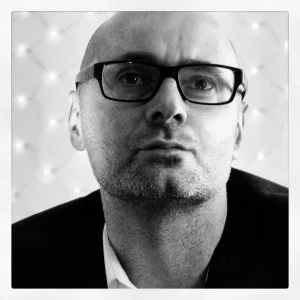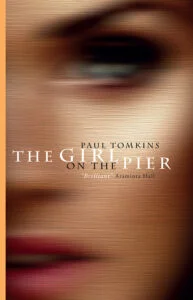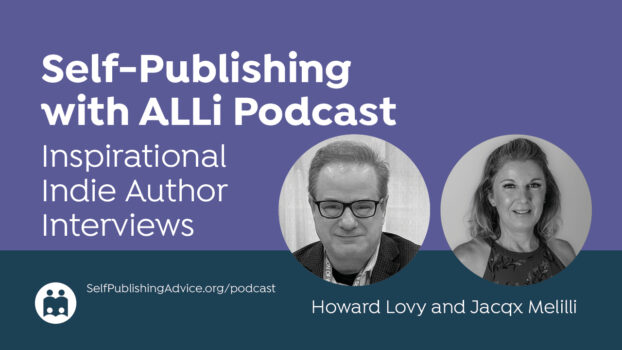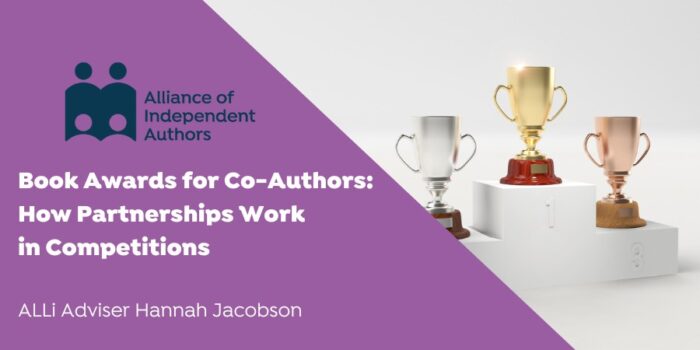British indie author Paul Tomkins, a Professional Member of ALLi, describes how self-publishing route the toll on his health in challenging circumstances, allowing him to sidestep the frustrations of the traditional publishing route.
Going it alone ten years ago started a chain of events that got me off Incapacity Benefit, and, even though my chronic illness persists – indeed, if anything it’s gradually worsening – it still pays the bills to this day.
It’s not always been a steady journey (in fact, it’s been a saga), and I’ve needed to find other ways of making my writing pay beyond books; but that I could even hope to do so stemmed from the decision to go solo, and the attention that very first book garnered. If self-publishing didn’t save my life, it at least gave me a living.
Writing with M.E.
My illness, M.E., means that I usually function at around a third of the energy levels of someone normal, as I suffer a post-exertional malaise from physical or mental activity, which brings about muscle pain, sleep disturbances, headaches, tremors, giddiness, blurred vision and memory loss, amongst other issues (more on my battle with the condition can be found here). Even though writing is tiring, especially on foggy-headed days, it’s one of the few things most of us can still do, albeit at our own pace.
Dealing the Agents
Everything changed for me ten years ago. In 2005, after blogging on the subject for five years, I self-published my first football book, and it got me noticed (and off Incapacity Benefit). It went on to sell 15,000 copies at full-price, albeit mostly at a loss on account of high production values. Still, I was offered a high-profile (unpaid) column on the strength of that book. But my unfinished novel was where my true passion lay. In 2012, I set about trying to finally finish it.
In 2013, I procured a literary agent, who loved the novel. She requested some rewrites before she took it to a publisher, and after those rewrites, somewhat out of the blue, she dropped me. Upon her advice I then worked with a literary consultancy, who provided great editorial advice. I went back to my ex-agent, and she felt the problems had been eradicated; she’d take the book to publishers after a tiny bit of work. And then, yet again, she dropped me.
I’d also had interest from a second agent a month after meeting the first, but now she wasn’t answering her emails. Was I ready to spend months, maybe years, chasing another? And would they insist on yet more changes? And if he or she placed it with a publishing house, would they force me to make it more conventional, to shoehorn it into a single genre or to fit with a current fad? Would I be forced into book tours that I was too ill to undertake? Would they try to tie me down to a second and third novel within an impossibly short timespan, get heavy about deadlines? Most worrying of all, would they insist on extensive plastic surgery, to make my book-jacket portrait less alarming to those of a nervous disposition?
The Self-Publishing Solution
So I self-published The Girl on the Pier with Matador. Hopefully word of mouth is quietly spreading, and all those little fires of interest I’ve lit will join together to form the literary equivalent of London, 1666 – although, to be fair, a minor blaze would suffice. Even just a few more sales, and a few more satisfied readers, would make it all feel worthwhile: a small sense of ongoing momentum. Some exciting news is that an esteemed film and TV production company, most of whose work has been for the BBC, have expressed an interest in buying the rights. But this is at a very early stage.
For the time being I will focus on my sportswriting, which pays the bills, and plan my next novel, which, at this point, with my health deteriorating slightly year on year, feels like trying to scale Everest a second time, only this time without ropes and oxygen. But to not even try would feel like laying down lamely to die at basecamp. And I’m not about to do that.
OVER TO YOU
Has self-publishing helped you overcome or cope better with illness? We'd love to hear your own stories – please share them via the comments box.
EASY TWEET
Publishing: How Self-publishing Saved My Life Share on X








[…] How Self-publishing Saved my Life by Paul Tomkins […]
Great to hear of your writing success, Paul. I have similar difficulties with chronic illness. I took up writing as a boredom buster and found that, not only do I thoroughly enjoy it, it is a great activity for keeping my mind stimulated now that I’m no longer otherwise employed. Yesterday, I self-published my first book on Amazon. The boost that completing it has given to my self-esteem is worth more than any amount of money. Any royalties I may make will be the icing on the cake. I encourage others dealing with a chronic condition to give writing a go.
Great to hear of other ME authors managing so well.
I was diagnosed with B12 deficiency and ME/CFS three years ago and my life just crashed completely. Writing is all I have now and without it I would be so lost. I am about to publish my first novel – started when I realised I was never going to get better and be able to do my old work. I had to find a way of earning a living and not going mad whilst spending my life ill and exhausted. I have a lot more work in the pipeline which surprises a lot of people as I still have no idea how well my work will sell but I am determined to make it work as it is literally giving me a life and a future that I should be able to manage however ill I get.
Thanks for sharing your experience, Paul. I can really relate to your reasons for self-publishing.
I was diagnosed with cancer shortly after finishing my novel. I gave a couple of agents a go, but as I didn’t know how much time I might have to chase the traditional publishing deal, I decided to self-publish and get my book out into the world.
It gave me a positive focus during my treatment – and the sense that I was ‘doing what I was born to do’ was energising, and perhaps even helped my healing. Winning the Guardian Self-published Book of the Month was another big boost.
I am completely well again now. I can’t say self-publishing saved my life, but it was without doubt an essential part of my journey back to health!
Wishing you well.
I absolutely love your cover, too. Gorgeous design.
Great story, Paul. I’m currently publishing on Matador, too. I’ve just added The Girl on the Pier to my reading list.
Exciting news about the potential adaptation! I’m wondering how that came about without an agent? (Would an agent actually work towards securing something like that, anyway?)
Hope everything works out with the new book. Stick with it.
Amazing story Paul, I wish you every success!
Self-publishing has offered me sanity and a creative outlet, and also a way to reach the kind of people I want to hang out with – my tribe.
Thanks for sharing.
Self-publishing may not have saved my life, but it has contributed to saving my sanity, by giving me an easy way to do something constructive about health issues that have affected my family – on World Diabetes Day I published a book to raise funds and awareness for Type 1 diabetes, which affects both my husband and our only child. The book went down so well, and continues to sell without my doing any real marketing for it, that I now plan to publish a new book on the same theme, with a different angle, each World Diabetes Day until a cure is found. Self-publishing is empowering in so many different ways.
I have not been impacted myself, but have had a lot of family health issues that have impacted my writing. Life happens a lot and the writing has certainly helped me funnel off both stress and angst–and keep my sense of humor. One of my daughter’s posted on her FB this week this rather wise comment: “I think sometimes you work hard for a long time waiting for things to get easier, and then you realize, things don’t get easier. You just have to redefine what “easy” is as you get stronger.”
Congrats to you on pressing forward. You are not alone. 🙂
Great quote, Pauline. Wise, indeed! Things only seem to get ‘easier’ through experience, better coping strategies, etc.
Nothing worth doing ever feels ‘easy’, anyway. If you don’t grow or learn in some way, what’s the point?
Good luck Paul.
So annoying to see how authors get messed around.